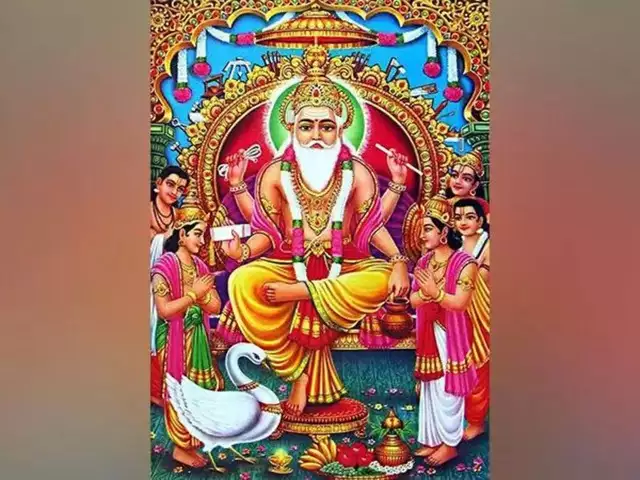
Celebrating Biswakarma Puja: A Tribute to the Divine Architect
- utsavhub.com
- 18 September 2024
- By Religion, Festival Details, Hinduism
- 0 Comments
Introduction
In the heart of India’s vibrant tapestry of festivals, Biswakarma Puja in india stands out as a significant celebration, especially among artisans, craftsmen, and the industrial community. Dedicated to Lord Biswakarma—the divine architect and master craftsman—this festival honors the spirit of creation, innovation, and the harmony of human ingenuity with divine blessings.
Historical Significance
The origins of Biswakarma Puja can be traced back to ancient scriptures, where Lord Biswakarma is revered as the celestial architect responsible for building the universe, including the mythical cities of Lanka and Dwarka. For centuries, he has been the symbol of craftsmanship, design, and engineering. His legendary status is celebrated particularly in the states of West Bengal, Odisha, Bihar, and parts of Uttar Pradesh and Jharkhand, where the festival holds cultural and spiritual significance.
When is Biswakarma Puja Celebrated?
Typically observed on the 14th day of the month of Bhadra in the Hindu calendar, Biswakarma Puja in Bhubaneswar falls around September or October in the Gregorian calendar. The date may vary slightly based on regional customs, but the essence of the celebration remains unchanged.
Festivities and Rituals
The celebration of Biswakarma Puja involves various rituals and practices that are rich in tradition:
- Preparation: Prior to the day of the festival, workplaces and homes are cleaned and decorated with flowers, colorful rangolis, and banana leaves. Tools, machinery, and instruments are also cleaned, symbolizing respect for the tools that aid in creation.
- Idol Creation: Idols of Lord Biswakarma are created, often adorned with flowers and fruits. In industrial settings, it’s common to set up a symbolic throne for the deity near machinery or tools.
- Puja Ceremony: Devotees gather to offer prayers, recite hymns, and seek blessings for prosperity and success in their endeavors. The rituals often include the chanting of specific mantras, sprinkling of holy water, and offering of sweet dishes and fruits to the deity.
- Community Celebration: The festival isn’t just a personal affair; it fosters community spirit. Artisans, workers, and craftsmen come together to celebrate, share meals, and exchange wishes of prosperity. In many places, festive fairs and cultural programs featuring traditional music and dance are organized.
- Post-Puja Activities: After the rituals, it’s common for participants to partake in feasting, usually featuring special dishes prepared for the occasion. The observance of Biswakarma Puja often concludes with a sense of unity and shared purpose among the community members.
Cultural Relevance
In today’s fast-paced industrial world, Biswakarma Puja serves as a reminder of the importance of craftsmanship and the value of skilled labor. It fosters a sense of pride in one’s work and reinforces the connection between creativity and spirituality. For businesses, factories, and artisans, this festival is not just a religious observance but also a day to reflect on their responsibilities towards their craft and environment.
Conclusion
Biswakarma Puja is more than just a festival; it is an ode to the ingenuity and dedication of those who shape our world through their skills. As we celebrate this sacred day, may we continue to honor the spirit of creation, embracing both ancient traditions and modern innovations. Whether you are an artisan, an engineer, or someone who appreciates the beauty of craftsmanship, this festival invites you to reflect on the divine artistry that surrounds us.

